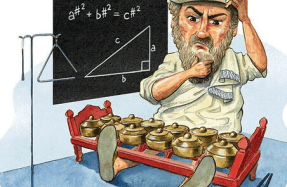Chamber

Beethoven • Pleyel
Beethoven: Cello Sonatas, Op. 5; Variations on ‘Bei Männern, welche Liebe fühlen’; Pleyel: Nocturne ‘Souvenir de la Flûte enchantée’ Raphaël Pidoux (cello), Tanguy de Williencourt (piano)
Harmonia Mundi HMM902410 64:44 mins

Following Beethoven’s 1796 visit to King Frederick II’s Sanssouci palace, where he performed with court cellist Duport, he composed these two ‘grand sonatas for harpsichord or piano-forte with an obligato cello’. They are two of the first where every note of the piano part is written out – and what piano writing! From the obsessive focus on a single tone to a thunderous hurly-burly exploiting the piano’s whole range, the sheer exuberance and invention of these works is brought to vivid life here.
Cellist Raphaël Pidoux handles his tawny-voiced Pietro Guarneri with fiery grace, drawing luminous lyricism and gruff delicacy. The 1855 Gebauhr fortepiano, played by Tanguy de Williencourt, is an ideal partner, with a silky, light articulation but sufficient heft for Beethoven’s orchestral-like textures. The duo brings a sense of spontaneous conversation, from the intimate recitativo opening of the irrepressible F major to the operatic drama of the G minor’s Adagio sostenuto e espressivo.
The duo finish with two love letters to Mozart’s Magic Flute. Beethoven’s witty Variations on ‘Bei Männern’ WoO 46, and Pleyel/ Baudiot’s 1825 ‘recollection’ of their favourite arias from the same opera present a charmingly indulgent medley. Helen Wallace
PERFORMANCE ★★★★★
RECORDING ★★★★★
Haydn
String Quartets, Op. 76
London Haydn Quartet
Hyperion CDA68335 152:39 mins (2 discs)
You’re reading a preview, subscribe to read more.
Start your free 30 days



